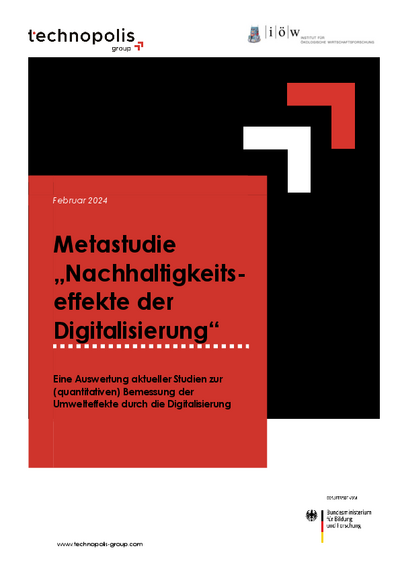Metastudy “Sustainability effects of digitalization” An evaluation of current studies on the (quantitative) measurement of the environmental effects of digitalization
Digitalization holds both potential and risks for a sustainable future. This is the conclusion of a comprehensive study conducted by Technopolis Germany and the Institute for Ecological Economy Research on behalf of the Federal Ministry of Education and Research. A total of 200 studies on the topic of digitalization and sustainability were analyzed in eight subject areas. The results show a multi-layered picture: On the one hand, certain applications such as building automation, smart charging or intelligent agricultural systems can contribute to significant environmental benefits such as CO2 savings, for example through resource efficiency. On the other hand, the production of digital technologies generates significant emissions. In addition, rebound effects, for example, can cancel out some of the savings. At the same time, research into the sustainability potential of digitalization is still incomplete in many areas.
The study underlines the need for further research, for example in the area of the overall effect of digitalization on resource consumption. It is recommended that the ecological impact of digital technologies be assessed more comprehensively and that both upstream and downstream effects be examined more closely.
The study was commissioned by the German Federal Ministry of Education and Research.



